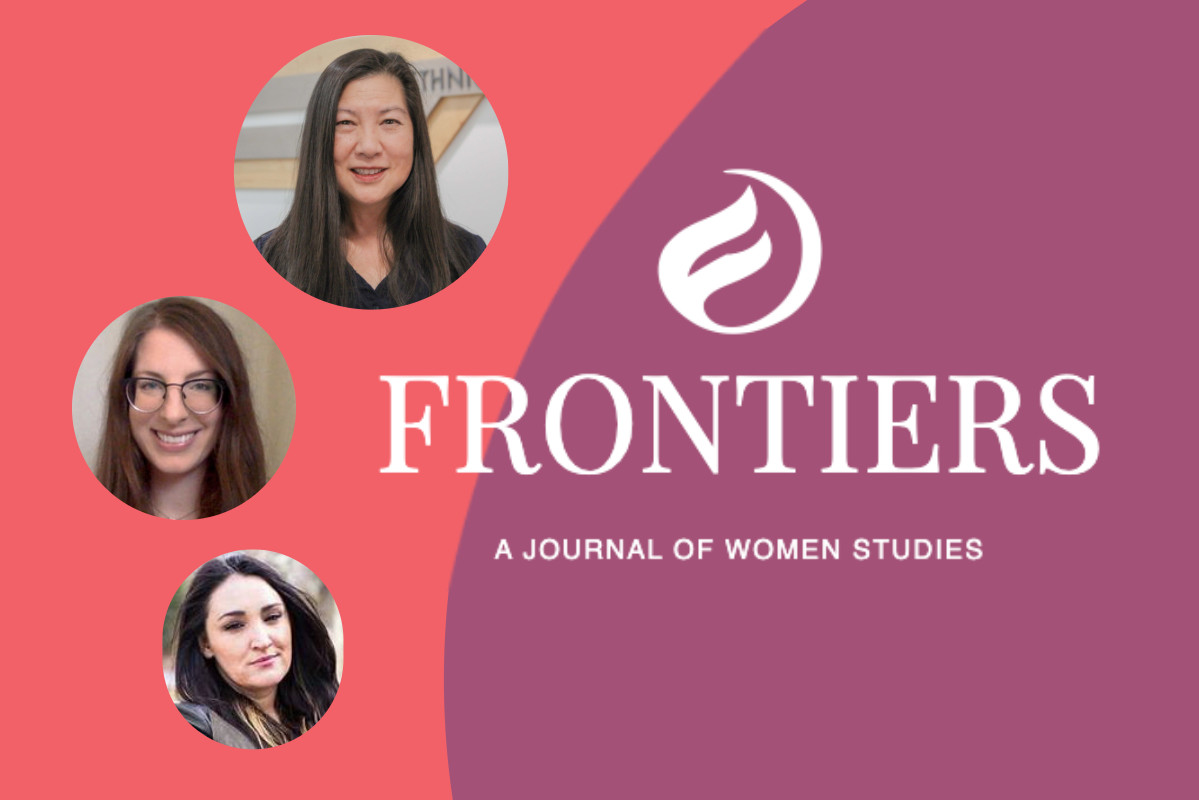"Frontiers: A Journal of Women Studies" turns fifty this year and, to commemorate this important milestone, the Frontiers editorial collective – including Department of Theatre's Associate Professor and Ethnic Studies' Interim Chair and Associate Professor Kimberly Jew (Theatre, Ethnic Studies), University of Colorado Boulder's Institute of Artic and Alipine Research Managing Editor Elise Homan (Gender Studies; also Communication Studies PhD ’23), and Consultant in Higher Education & Government and Independent Research Elizabeth C. Silva (Education Culture and Society PhD ’21) – produced an ambitious 50th anniversary Oral History Project.
This excerpt from the project introduction elaborates the importance of this research:
"Conceived in 2019, the project’s goal was to gather and archive oral history interviews with past Journal editors, editorial assistants, board members, and those affiliated with the Journal during its long history.
Led by co-editor Kimberly Jew, the editorial collective at the University of Utah secured a University research grant to fund the project. Elizabeth C. Silva, a University of Utah PhD student at the time, was hired to conduct the interviews. Based on questions developed by the co-editors, Silva interviewed 15 participants via Zoom during the months of February and March 2021. Over the next several years, the editorial collective, including Elise Homan (an editorial assistant and University of Utah PhD student at the time), engaged in a multi-layered process of transcription, writing summaries, editing, and preparing the final transcripts and audio files for transfer to two archives.
The oral histories are now housed at the University of California at Berkeley Bancroft Library (official Frontiers archives) and the University of Utah Marriott Library (partial online holdings). Both archives are accessible for research endeavors.
The Frontiers at 50 Oral History Project illuminates how the editors enacted a feminist politics of collaboration and connectivity, including:
- approaching editorial work as research and pedagogy
- focusing on the mentorship of emerging scholars and their writing
- creating space for women’s community within its pages
- engaging in public activities for the field, such as the Transnational Feminist Summer Institute hosted by The Ohio State University in 2014
- embracing the generative notions of “frontiers” (regional and innovative)
These oral histories provide not only a narrative of the Journal’s unique history but of the past 50 years of feminist and women’s centered scholarship, community, and activism. This online issue offers a first look at these interviews as a preview to the many other stories that can now be found in the Frontiers archives."

